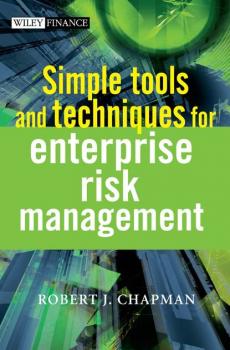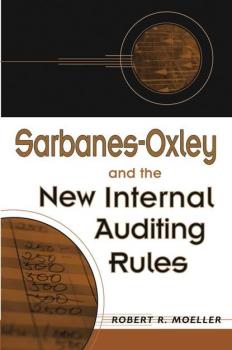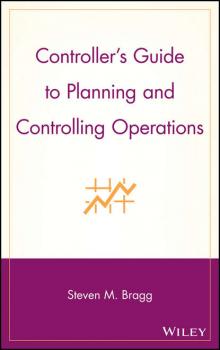Группа авторов
Список книг автора Группа авторовStructures and Construction in Historic Building Conservation
This book is the second in a series of volumes that combine conservation philosophy in the built environment with knowledge of traditional materials, and structural and constructional conservation techniques and technology: Understanding Historic Building Conservation Structures & Construction in Historic Building Conservation Materials & Skills for Historic Building Conservation The series aims to introduce each aspect of conservation and to provide concise, basic and up-to-date knowledge for architects, surveyors and engineers as well as for commissioning client bodies, managers and advisors. In each book, Michael Forsyth draws together chapters by leading architects, structural engineers and related professionals to reflect the interdisciplinary nature of conservation work. The books are structured to be of direct practical application, taking the reader through the process of historic building conservation and emphasising throughout the integrative teamwork involved. This present volume – Structures & Construction in Historic Building Conservation – traces the history of structures in various materials and contains guidance on the survey, assessment and diagnosis of structures and the integration of building code requirements within the historic fabric. It discusses conservation engineering philosophy, exposes the conflict between building codes and conservation legislation, and offers solutions. Leading-edge, on-site metric survey techniques are described and a range of structural advice is given, including methods of repair in relation to philosophical principles. Causes of induced movement in historic buildings are explained, together with basic soil mechanics and the assessment and diagnosis of structural failure. Chapters also cover the conservation of different types of construction: masonry, iron and steel, and concrete and reinforced concrete. Fourteen chapters written by the experts present today's key issues in structures and construction for historic building conservation: Bill Blake, Michael Bussell, David Cook, Dina F. D'Ayala, Steve Emery, Michael Forsyth, Ian Hume, Peter Norris
Contractual Correspondence for Architects and Project Managers
This book provides over 160 model letters, with commentary for use with all the main JCT 2005 building contracts. It concentrates on problems which can arise during a project, and draws on the author’s extensive experience as a contracts consultant. It is a companion to the author’s Standard Letters in Architectural Practice which covers more routine matters. The revised Fourth Edition takes account of: the 2005 editions of the JCT Standard Building Contract, the Intermediate Building Contract and the Minor Works Building Contract, both with their contractor’s design versions, ICD and MWD the 2004 updates of the Standard Form of Agreement for the Appointment of an Architect changes to case law since the last edition was published in 1996 It will be an invaluable guide for architects, building surveyors and project managers.
Managing the Training Function For Bottom Line Results
This book presents time saving strategies, tactics, and a host of job aids to get the best result from the corporate learning function. It will serve both as a must-have reference tool and as a practical survival guide for workplace learning professionals who face unique challenges in accomplishing their responsibilities. Several strategies and tactics are offered to organize the roles and responsibilities of the training function. There's authoritative advice, too, for managing the function including staff management, communicating expectations, setting the learning agenda, coaching subject matter experts, hiring consultants and vendors, managing content, working with learning portals, setting up and managing a learning resource center, marketing and building internal support for training, and integrating learning into the business.
The WorldatWork Handbook of Compensation, Benefits and Total Rewards
Praise for The WorldatWork Handbook of Compensation, Benefits & Total Rewards This is the definitive guide to compensation and benefits for modern HR professionals who must attract, motivate, and retain quality employees. Technical enough for specialists but broad in scope for generalists, this well-rounded resource belongs on the desk of every recruiter and HR executive. An indispensable tool for understanding and implementing the total rewards concept, the WorldatWork Handbook of Compensation, Benefits, and Total Rewards is the key to designing compensation practices that ensure organizational success. Coverage includes: Why the total rewards strategy works Developing the components of a total rewards program Common ways a total rewards program can go wrong Designing and implementing a total rewards program Communicating the total rewards vision Developing a compensation philosophy and package FLSA and other laws that affect compensation Determining and setting competitive salary levels And much more
Financial Applications using Excel Add-in Development in C / C++
Financial Applications using Excel Add-in Development in C/C++ is a must-buy book for any serious Excel developer.Excel is the industry standard for financial modelling, providing a number of ways for users to extend the functionality of their own add-ins, including VBA and C/C++. This is the only complete how-to guide and reference book for the creation of high performance add-ins for Excel in C and C++ for users in the finance industry. Steve Dalton explains how to apply Excel add-ins to financial applications with many examples given throughout the book. It also covers the relative strengths and weaknesses of developing add-ins for Excel in VBA versus C/C++, and provides comprehensive code, workbooks and example projects on the accompanying CD-ROM. The impact of Excel 2007’s multi-threaded workbook calculations and large grids on add-in development are fully explored. Financial Applications using Excel Add-in Development in C/C++ features: Extensive example codes in VBA, C and C++, explaining all the ways in which a developer can achieve their objectives. Example projects that demonstrate, from start to finish, the potential of Excel when powerful add-ins can be easily developed. Develops the readers understanding of the relative strengths and weaknesses of developing add-ins for Excel in VBA versus C/C++. A CD-ROM with several thousand lines of example code, numerous workbooks, and a number of complete example projects.
Paul Wilmott on Quantitative Finance, 3 Volume Set
Paul Wilmott on Quantitative Finance, Second Edition provides a thoroughly updated look at derivatives and financial engineering, published in three volumes with additional CD-ROM. Volume 1: Mathematical and Financial Foundations; Basic Theory of Derivatives; Risk and Return. The reader is introduced to the fundamental mathematical tools and financial concepts needed to understand quantitative finance, portfolio management and derivatives. Parallels are drawn between the respectable world of investing and the not-so-respectable world of gambling. Volume 2: Exotic Contracts and Path Dependency; Fixed Income Modeling and Derivatives; Credit Risk In this volume the reader sees further applications of stochastic mathematics to new financial problems and different markets. Volume 3: Advanced Topics; Numerical Methods and Programs. In this volume the reader enters territory rarely seen in textbooks, the cutting-edge research. Numerical methods are also introduced so that the models can now all be accurately and quickly solved. Throughout the volumes, the author has included numerous Bloomberg screen dumps to illustrate in real terms the points he raises, together with essential Visual Basic code, spreadsheet explanations of the models, the reproduction of term sheets and option classification tables. In addition to the practical orientation of the book the author himself also appears throughout the book—in cartoon form, readers will be relieved to hear—to personally highlight and explain the key sections and issues discussed. Note: CD-ROM/DVD and other supplementary materials are not included as part of eBook file.
Simple Tools and Techniques for Enterprise Risk Management
Enterprise Risk Management (ERM) represents a fundamental shift in the way businesses must approach risk. As the economy becomes more service driven and globally oriented, businesses cannot afford to let new, unforeseen areas of risk remain unidentified. Currency fluctuations, human resources in foreign countries, evaporating distribution channels, corporate governance, and unprecedented dependence on technology are just a few of the new risks businesses must assess. This accessible book, aimed at the implementers and practitioners of ERM, provides a highly structured approach so you can easily implement processes in your own organization. You'll find a number of case studies and practical examples from a variety of industries. The chapters are organized in a way that leads you through ERM implementation and include risk identification techniques, risk modelling methods, and the underlying statistics. Order your copy today!
Sarbanes-Oxley and the New Internal Auditing Rules
Sarbanes-Oxley and the New Internal Auditing Rules thoroughly and clearly explains the Sarbanes-Oxley Act, how it impacts auditors, and how internal auditing can help with its requirements, such as launching an ethics and whistle-blower program or performing effective internal controls reviews under the COSO framework. With ample coverage of emerging rules that have yet to be issued and other matters subject to change, this book outlines fundamental blueprints of the new rules, technological developments, and evolving trends that impact internal audit professionals. Order your copy today!
Interpretation and Application of International Standards on Auditing
Written by Steven Collings, winner of Accounting Technician of the Year at the British Accountancy Awards 2011, this book deals with the significant changes auditing has undergone in recent years, due in large part to well-publicised corporate disasters such as Enron and Parmalat, which have shaken the profession. In response, many countries have replaced pre-existing domestic standards with International Standards on Auditing (ISAs) in an attempt to ensure that auditors throughout the world apply the same level of standards during all audit assignments, and that audit quality remains consistent on a global basis. International Standards on Auditing are frequently updated to improve and clarify their application throughout the audit and accounting profession. They can be extremely complex and difficult to apply in real life situations. It is essential to apply the standards with sufficient rigor to enable an efficient audit to take place, to satisfy the regulators and ensure that the client receives and audit which is beneficial, cost effective, and which conforms to the prescribed framework; however, auditors are often criticised for failing to do so. Recognising that auditing is not always an exact science, and that in many cases the auditor is called upon to make a judgement in situations open to differing opinions, this book takes a practical and pragmatic approach to following International Standards on Auditing. Steve Collings looks at the full ISAs in their final form, as reissued following the IAASB 'Clarity Project', and give auditors guidance on how to interpret and apply them in real life situations. Each redrafted or rewritten ISA is dealt with in a separate chapter, containing case studies and illustrative examples. The book also covers the regulatory framework of auditing and gives a summary of the five ethical standards applicable to auditors, as mapped by the IAASB. Detailed appendices provide an overview of IFRS and IAS, illustrative audit tests and illustrative financial statements.
Controller's Guide to Planning and Controlling Operations
The Controller's Guide to Planning and Controlling Operations is a comprehensive guide for controllers, CFOs, and budget managers who need to determine: The soundness of sales forecasts The best approach for setting product prices The profitability of customers and market segments Federal tax remittance rules The impact of a just-in-time system on inventory levels Packed with clear and realistic strategies, it helps create a coherent framework of financial plans that apply to the full breadth of ongoing corporate control systems, as well as illustrates: When to use labor and materials standards to control manufacturing How to control research and development costs How to grant appropriate credit levels to customers How to set up an effective capital budgeting process How to create a cost-of-capital calculation









